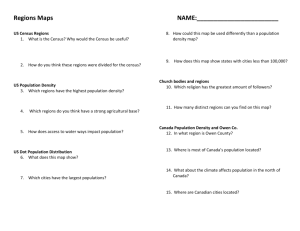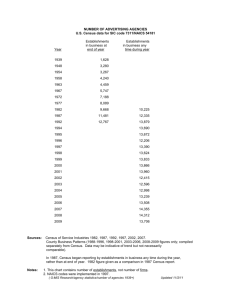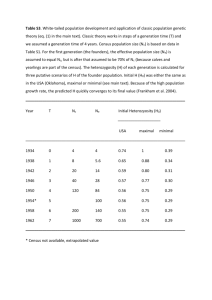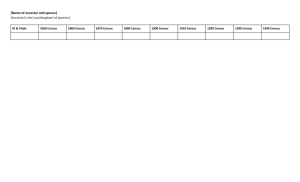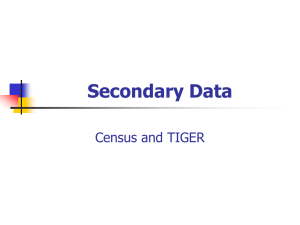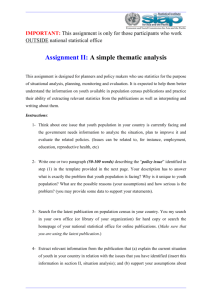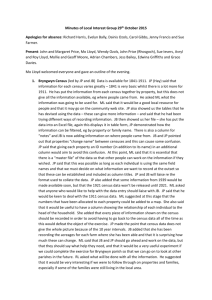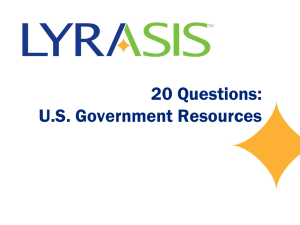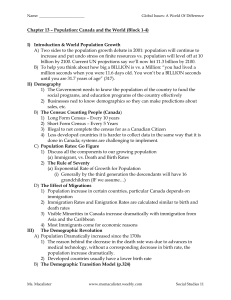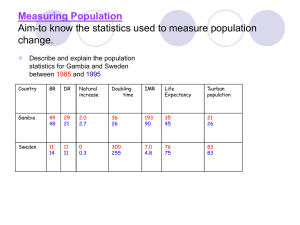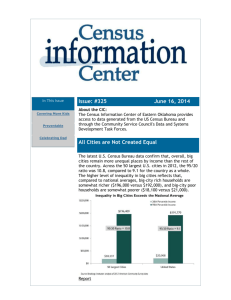2.06 Is Your Idea Feasible Handout & Assignment
advertisement
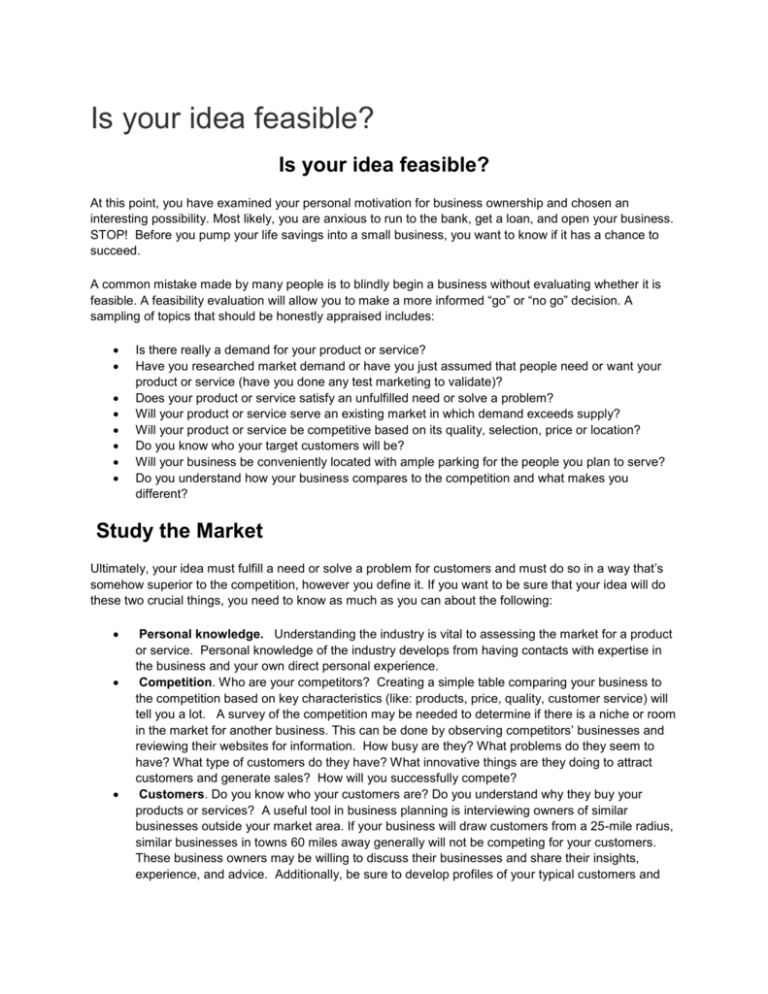
Is your idea feasible? Is your idea feasible? At this point, you have examined your personal motivation for business ownership and chosen an interesting possibility. Most likely, you are anxious to run to the bank, get a loan, and open your business. STOP! Before you pump your life savings into a small business, you want to know if it has a chance to succeed. A common mistake made by many people is to blindly begin a business without evaluating whether it is feasible. A feasibility evaluation will allow you to make a more informed “go” or “no go” decision. A sampling of topics that should be honestly appraised includes: Is there really a demand for your product or service? Have you researched market demand or have you just assumed that people need or want your product or service (have you done any test marketing to validate)? Does your product or service satisfy an unfulfilled need or solve a problem? Will your product or service serve an existing market in which demand exceeds supply? Will your product or service be competitive based on its quality, selection, price or location? Do you know who your target customers will be? Will your business be conveniently located with ample parking for the people you plan to serve? Do you understand how your business compares to the competition and what makes you different? Study the Market Ultimately, your idea must fulfill a need or solve a problem for customers and must do so in a way that’s somehow superior to the competition, however you define it. If you want to be sure that your idea will do these two crucial things, you need to know as much as you can about the following: Personal knowledge. Understanding the industry is vital to assessing the market for a product or service. Personal knowledge of the industry develops from having contacts with expertise in the business and your own direct personal experience. Competition. Who are your competitors? Creating a simple table comparing your business to the competition based on key characteristics (like: products, price, quality, customer service) will tell you a lot. A survey of the competition may be needed to determine if there is a niche or room in the market for another business. This can be done by observing competitors’ businesses and reviewing their websites for information. How busy are they? What problems do they seem to have? What type of customers do they have? What innovative things are they doing to attract customers and generate sales? How will you successfully compete? Customers. Do you know who your customers are? Do you understand why they buy your products or services? A useful tool in business planning is interviewing owners of similar businesses outside your market area. If your business will draw customers from a 25-mile radius, similar businesses in towns 60 miles away generally will not be competing for your customers. These business owners may be willing to discuss their businesses and share their insights, experience, and advice. Additionally, be sure to develop profiles of your typical customers and then talk with people fitting the profile descriptions using tools like: focus groups, surveys, and test marketing with feedback. Secondary research. Finding information that is already published, through searching the library or Internet, is necessary to quantify the market and to verify your findings from the above three steps. How big is your market? Is it large enough to sustain your business and competition? What is the growth trend for the next five years? Once a market has been identified, what is the size of the actual market that you can compete in? The actual market segment that you can sell to may be a small fraction of the total market. Research Tools The following tools are designed to help with research at the library or on the Internet. This research should not be neglected nor should it be the sole source of information used in developing a business or marketing plan. Local and university libraries contain publications and access to online resources which can provide much of the information entrepreneurs need. Materials that are not in your local library may be obtained through interlibrary loans. Check with the reference librarians for assistance with all forms of research. Use the following list as your guide to doing secondary research on a specific business or industry. Identify the appropriate North American Industry Classification System (NAICS) code for your business. The 2-6 digit codes are the standard used by federal statistical agencies classifying business establishments. Since many government and industrial statistics are gathered and reported by NAICS code, identification of the correct code for your business will enable you to locate important data. A NAICS code manual is available at most libraries and online through the NTIS website. Check for the current periodical publications and literature on the subject. Check the Small Business Sourcebook or the Encyclopedia of Business Information Sources to identify major books, trade journals, and organizations for specific business categories. Contact the appropriate industry trade associations that are listed in the Encyclopedia of Associations. Obtain a media kit from trade journals. Contact franchisors for information on their franchised businesses. Obtain the financial ratios for the business category. Trade association financial studies usually provide the most detailed information. Other popular sources include: Robert Morris Associates Annual Statement Studies, Dun & Bradstreet’s Business and Financial Ratio, and Financial Research Associate’s Financial Studies of the Small Business (see a reference librarian for assistance). Examine census material such as income, age, and family size of populations in areas as small in size as zip codes in the Census of Population and Housing, Census of Retail Trade, Census of Service Industries, Census of Wholesale Trade, and Census of Manufacturers. The Department of the Census website is: www.census.gov. Search the Internet for information on your topic. Is your idea feasible? Assignment 1. Develop an idea for a product or service. 2. Answer the following questions pertaining to your product/service: Is there really a demand for your product or service? Have you researched market demand or have you just assumed that people need or want your product or service (have you done any test marketing to validate)? Does your product or service satisfy an unfulfilled need or solve a problem? Will your product or service serve an existing market in which demand exceeds supply? Will your product or service be competitive based on its quality, selection, price or location? Do you know who your target customers will be? Will your business be conveniently located with ample parking for the people you plan to serve? Do you understand how your business compares to the competition and what makes you different?
